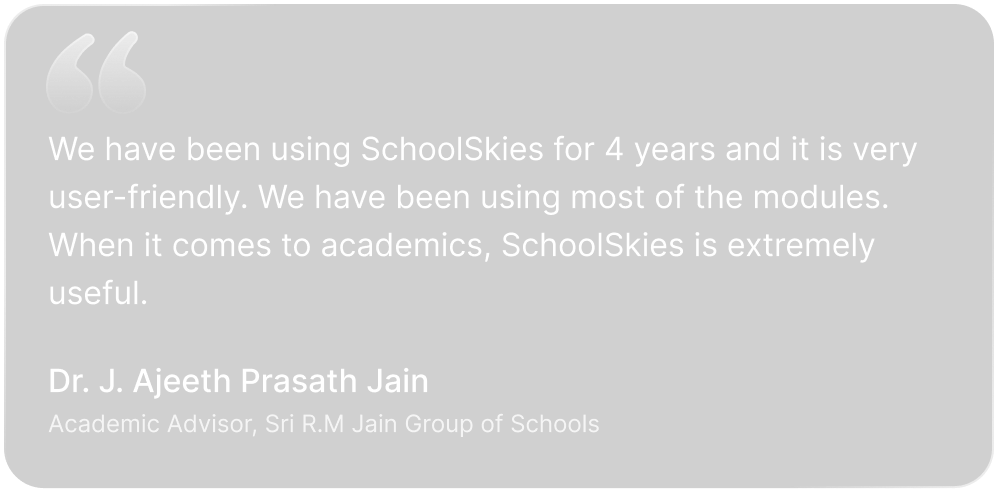Start Your Free
Trial Now


In the digital age, where technology seamlessly integrates into various facets of our lives, education is undergoing a significant transformation. Traditional administrative processes are evolving to meet the demands of a more connected and dynamic learning environment. School Management Platforms (SMPs) have emerged as indispensable tools, bridging the gap between traditional administrative methods and the digital possibilities of the 21st century. In this blog post, we explore the importance of School Management Platforms and how they are shaping the landscape of modern education.
School Management Platforms act as a central hub for various administrative tasks, consolidating functions such as attendance tracking, grade management, and communication channels. This consolidation translates into increased efficiency, reducing manual workloads and streamlining operations for administrators, teachers, and staff.
In the digital age, the demand for real-time information is paramount. School Management Platforms provide stakeholders – including teachers, parents, and students – with instant access to relevant information. From grades and attendance records to important announcements, real-time access fosters a more informed and engaged educational community.
School Management Platforms bridge communication gaps between schools, teachers, parents, and students. With features like messaging, announcements, and event calendars, these platforms create a collaborative space where information is easily shared. This enhanced communication fosters a sense of community and ensures everyone is on the same page regarding academic progress and school activities.
The digital age is synonymous with customization, and SMPs play a crucial role in providing personalized learning experiences. These platforms enable teachers to tailor instruction based on individual student needs, ensuring a more adaptive and student-centric approach to education.
Data analytics integrated into School Management Platforms provide valuable insights for informed decision-making. Schools can analyze trends in student performance, attendance patterns, and resource utilization, allowing administrators and educators to make data-driven decisions that positively impact the overall learning environment.
ERP facilitates stronger parental involvement by providing a transparent view of their child's academic journey. Parents can easily access grades, attendance records, and communication channels, enabling them to actively participate in their child's education and collaborate with teachers to support their learning.
School Management Platforms aid in optimizing resources within educational institutions. From classroom scheduling to faculty allocation, these platforms provide insights that help schools make efficient use of their resources, ultimately leading to cost savings and improved operational efficiency.
With the growing concern for cybersecurity, SMPs prioritize security and data privacy. Features like secure logins, and encrypted communication ensure that sensitive information about students and staff is protected in the digital realm.
By embracing School Management Platforms, educational institutions prepare students for the digital future. Familiarity with digital tools and platforms equips students with essential skills for the workforce, ensuring they are adept at navigating the technological landscape beyond the classroom.
In the digital age, School Management Platforms are not just tools for administrative convenience they are integral components of a modern and efficient educational ecosystem. By fostering real-time communication, personalized learning, and data-driven decision-making, these platforms empower educators, parents, and students alike. As education continues to evolve, the importance of School Management Platforms in navigating the digital frontier becomes increasingly evident, shaping a future where learning is not only connected but also tailored to the individual needs of each student.